Interview with Dr. Kishore Sengupta, Cambridge Judge Business School Director of Executive Education
Since its establishment in 1990, Cambridge Judge Business School has always been a leader in innovation and new knowledge creation. Executive Education at Cambridge Judge Business School continues to hone executives and organisations to be instruments of change and contribute to society through its rigorous curriculum and world class learning environment.
We had the pleasure of sitting down with Dr. Kishore Sengupta, Cambridge Judge Business School’s Director of Executive Education, and he shared with us his views on the state of Executive Education and how Cambridge Judge combines research excellence and practice expertise to meet the demands of business in the face of the rapidly changing world.
Good day, Dr. Sengupta! Thank you for sharing your valuable time by doing this interview with us. To start, for a top academic leader like you, what are the best morning routines to jumpstart a busy day and your quick tips to improve productivity for a day’s work?
One of the key elements to starting the day properly is to eat a healthy breakfast, which helps to create and channel positive energy. A quick scan of emails first thing can help prevent distractions and avoid firefighting later in the day. It’s also a good idea to tackle writing chores early in the day – before phones ring, emails arrive and people request meetings. A diary scan in the morning helps to prepare the day – but it’s also important to scan a day ahead in order to prepare for upcoming issues.
Nowadays, business practices are being transformed dramatically by globalisation and digitisation. Are there also significant changes or new trends in the executive education field? What are the major challenges?
One major challenge for executive education in today’s era is to align online delivery with rapidly changing business models around the world. There is a lot of noise associated with these changes, but there’s also evidence of the landscape settling into more predictable models with more stable partnerships and alliances. It’s also important to remember that while digital delivery is transformational, it will never replace the quality of a face-to-face learning relationship in such an intellectually vibrant hub like we have here in Cambridge.
Cambridge Judge Business School is a highly reputable institution for management education and a forerunner in delivering top quality Executive Education programmes. Can you tell us what are the outstanding features that set you apart from other business schools and what make your programmes unique and with best quality?
Cambridge Judge’s excellence is based on two features which are common across the wider University. First is our research capability. We have 16 research centres and are looking to add more all the time. Second is our small class sizes. We have significantly higher ratios of Faculty to participants on our programmes than most other schools. This gives an intensive and focused environment where original thought leadership and subject expertise come together with real world experience. It is why the UK government rated us as number 1 for the impact of our research. We use the term “deep engagement” to describe how research and practice play off each other, enhancing both aspects to the benefit of our Executive Education participants.
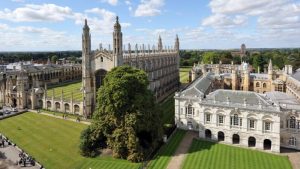 King’s College, University of Cambridge
King’s College, University of Cambridge
Despite the growing competition and changing nature of the market, how does Cambridge Judge Business School Executive Education respond to market shifts and new opportunities, as well as address the different learning and development needs of top executives?
We scan the horizon: using our research outreach, we’re able to spot trends and anticipate changes in the market and in the demands facing senior leaders around the world. We recognise that it’s difficult for many business leaders to take time away from the day to day to reflect and learn. Therefore, it is important to make the most of senior leaders’ time. Because of our research strength and emphasis on high Faculty to participant ratios, our programmes are often more intensive and focused than elsewhere. We feel that is important in how we add value.
To operate in a turbulent world, business leaders need radical innovation and network competencies. What do you think are the particular facets of the executive education curriculum that are immensely valuable tools for your participants?
The global nature of our clientele lends itself to the creation of powerful networks. Journeying to Cambridge from around the globe, our participants and clients form enduring and deep connections that last long beyond their brief time in Cambridge. We have groups of senior leaders still sharing experience, memories and advice years after completing their programmes. Clients bring disparate and multinational groups to programmes in Cambridge from around the world, creating internal networks and leveraging the power of organisational learning.
Can you tell us more about one of the interesting and strong features of your programmes – the peer learning exchange process. How does this help in enhancing the success of your programmes?
Our flagship Open programmes include the opportunity for personal transformation through peer coaching. Led by experienced and highly qualified practitioners, this coaching complements classroom theory with real-world examples through in-person sessions and online post-programme forums.
What are the important metrics that you use to gauge the inclusive and long-term effectiveness and impact of your programmes? How do you make sure that the participants and their organisations will gain the highest return on their investment in Executive Education programmes?
We carefully monitor all teaching sessions and measure their success in achieving the objectives for organisations and participants. Measurements taken post programme, which gauge differences in approach and attitude, can indicate the effectiveness of the learning experience at three and six months. Doing things differently – or identifying the barriers to change – are important measures of success. Feedback is shared with our teaching faculty to ensure they can act on areas that need improvement and enhancement.
With your vast professional experience prior being an academic leader of a prestigious university, what do you think are the kind of business leaders we need for a rapidly changing world and what kind of leadership the modern industries require?
From my experience, having worked across continents, I think that leaders need a global perspective in order to navigate today’s increasingly global topography. Resilience and tenacity, coupled with emotional intelligence and humility, are the personal attributes that I have seen in successful leaders.
On a lighter note, we are interested in knowing what are the top things or activities does a high-calibre academician like you do to recharge during your day-off from work?
Fast cars, sailing, new technological toys, and music.
Lastly, what does success mean to you? Any message you wish to share with our readers?
In my current role, I look at professional success through the prism of our Executive Education clients’ individual and organisational success. It’s a bit like a parent beaming contentedly on the sidelines if their child scores a goal on the football pitch – satisfaction through others’ achievements.
Thank you very much Dr. Sengupta! A pleasure speaking with you.
About the Interviewee
 Dr. Kishore Sengupta is Director of Executive Education and Reader in Operations Management at Cambridge Judge Business School. He has served as advisor on several projects with the US Government Department of Defense and NASA, and has consulted with organisations in Silicon Valley and Hong Kong. He has also worked at the AT&T Network Software Center (now LucentTechnologies) and Ernst & Young.Dr Sengupta’s published research appears in journals in information technology and management, such as Management Science, MIS Quarterly, IEEE Transactions on Software Engineering, IEEE Transactions on Systems, Man, and Cybernetics, and IEEE Transactions on Engineering Management. He is currently working on a book on online electronic environments.
Dr. Kishore Sengupta is Director of Executive Education and Reader in Operations Management at Cambridge Judge Business School. He has served as advisor on several projects with the US Government Department of Defense and NASA, and has consulted with organisations in Silicon Valley and Hong Kong. He has also worked at the AT&T Network Software Center (now LucentTechnologies) and Ernst & Young.Dr Sengupta’s published research appears in journals in information technology and management, such as Management Science, MIS Quarterly, IEEE Transactions on Software Engineering, IEEE Transactions on Systems, Man, and Cybernetics, and IEEE Transactions on Engineering Management. He is currently working on a book on online electronic environments.


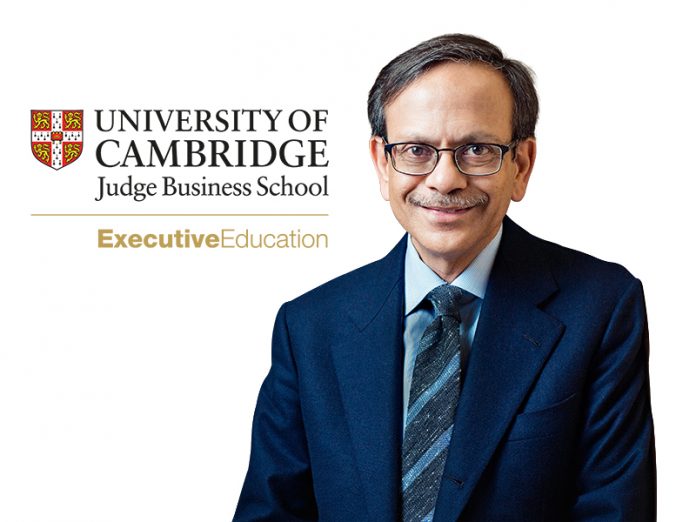
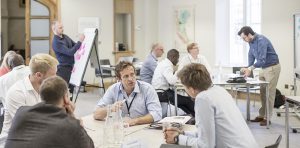
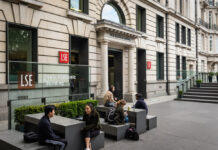
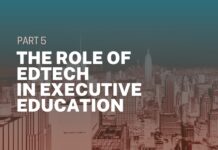


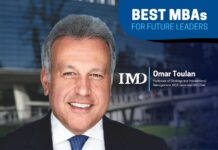


















![“Does Everyone Hear Me OK?”: How to Lead Virtual Teams Effectively iStock-1438575049 (1) [Converted]](https://www.europeanbusinessreview.com/wp-content/uploads/2024/11/iStock-1438575049-1-Converted-100x70.jpg)




